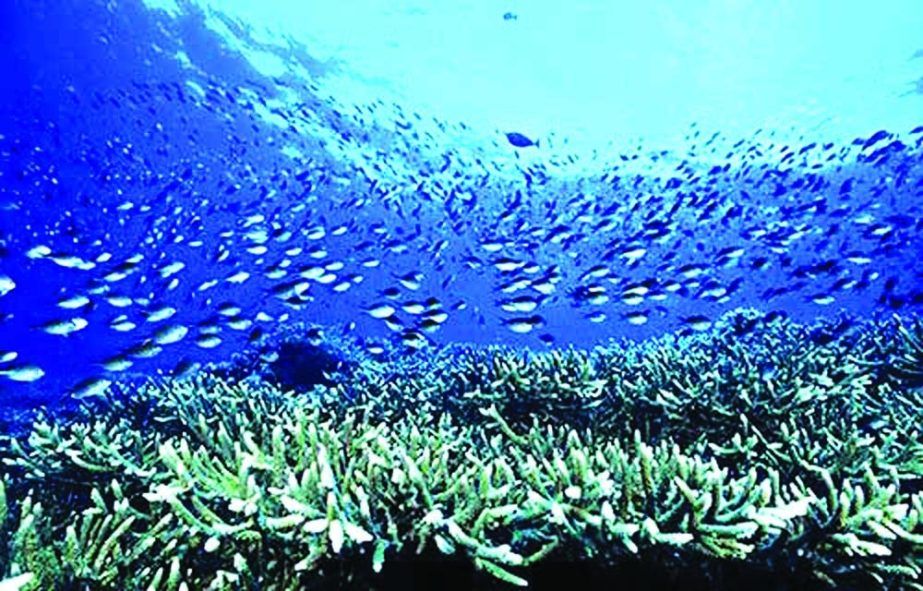
Business Desk :
Bangladesh is far behind in utilising the full potential of its marine resources due to the absence of an independent authority that can manage and capitalise on them, say experts and policymakers.
The government should form a ministry, department or council on the blue economy to ensure proper utilisation and contribution to the national economy, they said at an event on Saturday.
According to the experts, the blue economy has an annual turnover of between $3 trillion and $6 trillion around the world. Marine fisheries and aquaculture turnover is around $100 billion per year and generates 260 million jobs worldwide.
But Bangladesh has yet to explore its marine resources, including fishing, energy, mineral, and aquaculture, to the fullest even after securing an additional 19,467 square kilometres of maritime boundary area in 2014, they said.
Their views came during the consultative policy dialogue programme, titled “Blue Economy: Prospect of Institutionalization the National Progress,” held at Bangabandhu International Conference Center in Dhaka on Saturday evening. It was organised by the Social Security Policy Support Programme, an initiative of the Cabinet Division and the Planning Commission’s General Economics Division (GED), with support from UNDP and Australian Aid.
The programme works to identify the barriers and challenges the blue economy is facing and action plans for sustainable blue economic growth and development to earn benefits faster by using the untapped vast marine resources.
The prime minister’s Principal Secretary Dr Ahmad Kaikaus attended the dialogue as the chief guest. Principal Coordinator (SDG Affairs) at the Prime Minister’s Office Zuena Aziz, Foreign Ministry Secretary (Maritime Affairs Unit) Rear Admiral (retd) Md Khurshed Alam, Planning Division Secretary Pradip Ranjan Chakraborty, and Md Kawser Ahmed, member (secretary), GED, were among the participants.
Many government officers, university teachers, researchers and entrepreneurs also attended and gave feedback during the programme.
Ahmad Kaikaus said, “Once, our markets were built on the banks of rivers for better transport facility. But the World Bank advised developing road transport and avoiding railway. As a result, we are facing traffic jams every day. Now, we need to focus on marine or river transports.”
He added that major investment will also be needed from private entrepreneurs if the authorities go for developing and utilising the blue economy components.
Zuena Aziz said that different ministries were working on the blue economy components separately but it has become urgent to form a unique or independent authority to ensure its contribution to GDP. “This authority can be a ministry or a council.”
She said the fishing industry will expand riding on the blue economy and fishermen will be trained as investors will buy large fishing vessels to cope with the transformation period.
Khurshed Alam told the dialogue that there was a lack of coordination when it comes to the blue economy. “The blue economy is not only fishing in the marine areas, but also infrastructure development, mining natural energy and maritime transport.”
He said Chattrogram port has become very busy as its annual container handling capacity has now risen to three million. “This port may lose such capability soon in absence of proper manpower as the number of containers is growing.” Pangaon Inland Container Terminal in Dhaka’s Keraniganj is also facing a road conjunction problem, he added.
Addressing the dialogue, Pradip Ranjan Chakraborty said it was time to turn the marine areas with resources into proper blue economy components and create employment opportunities, ecosystem and cultural services for a good annual turnover. “The government is working on it.”

